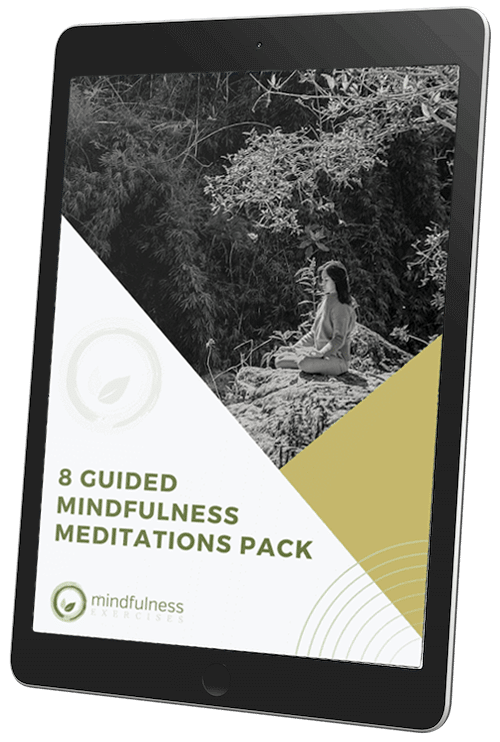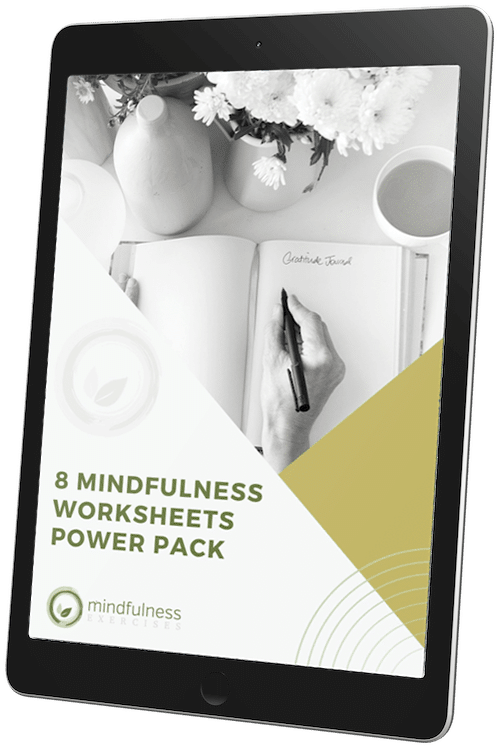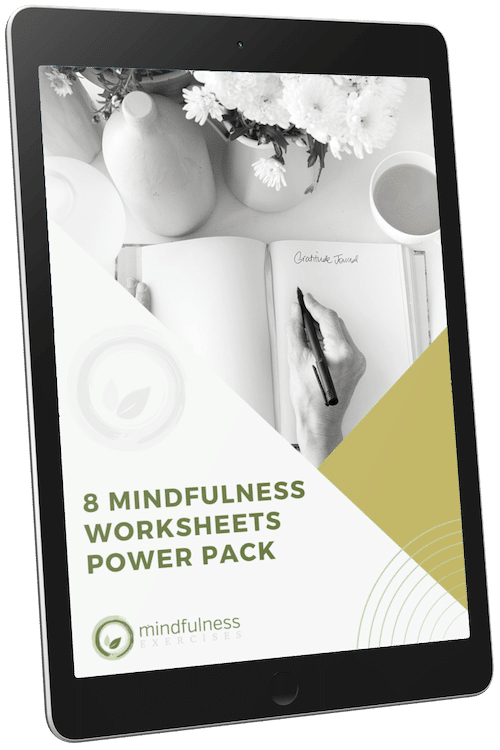As human beings we want nothing more than to be happy. And yet, do we really believe we deserve it? Among the barriers to our happiness is the insidious idea that it’s selfish to want happiness. It’s not. In fact, not pursuing happiness may be the most self-indulgent thing we can do.

“Happiness is your nature. It is not wrong to desire it. What is wrong is seeking it outside, when it is inside.”
- Ramana Maharshi -
Understanding Happiness
Social surveys in the United States indicate only 14% of Americans say they’re very happy. It’s a sad statistic considering happiness is readily available. If you don’t think happiness is something everyone has access to, part of the problem might be your definition of happiness.
Our capitalist society teaches us happiness is something to be acquired and it’s in limited supply. If we work hard, we’ll get the things that will make us happy in the future. But this type of happiness, that which comes from the outside, is more akin to relief. It’s a temporary, fleeting happiness that’s dependent on circumstances beyond our control.
True happiness, in the spiritual sense, is more akin to contentment, or satisfaction. It’s unrelated to the circumstances of our lives, lasting, and always available. This type of happiness is abundant, infinite, and accessible anytime because it’s found within you. It’s happiness which can never be taken away, even in moments of hardship.
So if each and every one of us has the potential to access this infinite inner resource, why haven’t we?

“Mindfulness, the root of happiness.”
- Joseph Goldstein -
Chasing the Wrong Kind of Happiness
Primarily, we’ve spent too much time chasing the wrong kind of happiness, we’ve mistaken temporary relief for long-term satisfaction and we wonder why we can’t or don’t feel good all the time.
Additional barriers to happiness include the mental afflictions that prevent us from striving for happiness. Embedded within each is the idea that perhaps we don’t deserve to be happy, or that maybe it’s selfish to want happiness. We reinforce this mistaken belief through our martyrdom, guilt and general low self-esteem.
Martyrdom
Martyrdom is a strong word, but we practice false martyrdom all the time. It’s in the small moments when we passive aggressively go along with the plan, but act miserable while doing so. It’s the way in which we avoid responsibility for our own happiness by resentfully serving others. And it’s in the way we work.
Caught up in the wrong definition of happiness, we busy ourselves and devote the entirety of our lives to the pursuit of an imagined future happiness, a satisfaction that works only in retrospect. We commit to the belief that suffering is good for us and in so doing, push happiness aside.
But true happiness can’t be found in the future or in the past. It’s only experienced now. And if in the now, we’re committed to being miserable, resentful, or busy, we’re missing the happiness we could have had instead.
Guilt
The world isn’t always a happy place. And yet to wear this suffering like a badge is less a sign of empathy, and more of a self-centered act. It says look at me and look how much I’m hurting, I’m carrying the weight of the world on my shoulders. True empathy is the ability to feel the suffering of others without taking it on ourselves.
We may feel guilty for nourishing our personal happiness when there are others who are still in pain. And yet the world receives no benefit from us reifying our victimhood or wallowing in sadness. If it’s others we’re truly thinking of, they’re better served by us when we’re happy and healthy.
Everyone has the same access to this powerful inner resource. By tapping into happiness ourselves, we’re able to be present with the suffering of others and we can serve as an example that true happiness is available, no matter what.

Low Self-Esteem
Not all of us grow up surrounded by happy people. When physical or mental illness, dysfunctional relationships, or financial stress overwhelm our childhoods, we can become addicted to pain and chaos because it’s where we feel most at home.
To become genuinely happy sometimes means separating ourselves from our loved ones, even if only in an emotional sense. Codependency and disordered relationships may have taught us that stepping out of the cycle of suffering is inherently selfish, elitist or unfair.
We choose to remain as suffering companions of the suffering out of a desire to belong, or we don’t choose at all, we simply act out of habit. Sometimes, we embody the unconscious belief that we don’t deserve happiness. As the famous quote says, “most folks are about as happy as they make up their minds to be.”
It’s time to make up our minds.

“If you speak or act with a calm, bright heart, then happiness follows you, like a shadow that never leaves.”
- Buddha -
Happiness Isn’t Selfish
The truth is, it’s not selfish to want happiness. Contrary to what we may think, it’s not happiness, but our anxiety and depression that’s the most self-indulgent. These sad and fearful mindsets simply cannot function unless we’re thinking of ourselves.
Anxiety relies on self-absorption to lock us into ruminative thought. It’s ourselves we’re thinking of when we’re worried about our performance, our circumstances, our reputation, or our finances. Self-criticism necessarily involves a focus on the self. Depression equally traps us in an obsession with our problems, our hardships, our suffering. This ego-driven focus on me and mine both creates and sustains unhappy states of mind.
Happiness on the other hand, is a mindset that automatically entails thinking about others. True happiness is only arrived at when we minimize our self-focused attention. And when we’re finally happy, it’s not ourselves who we think about, but others. Happy people share happiness.

“There is no path to happiness. Happiness is the path.”
- A. J. Muste -
The (Selfish?) Path to Happiness
Happy people are decidedly unselfish. They are more generous, more sociable and tend to think about others more often that themselves. But to get there, we have to want to be happy. So the path to happiness indeed starts off with a bit of a selfish premise. Yet it plays on this relationship between internal and external focus in a healthy way.
Thus, the desire for happiness that necessarily requires self-focused attention, only leads to selflessness in the end. Happy people contribute positively to the world in a very unselfish way.

“Happiness is when what you think, what you say and what you do are in harmony”
- Gandhi -
How to Become Happier
According to His Holiness the 14th Dalai Lama, the method for achieving happiness is twofold. Develop a stable, calm mind and develop compassion. While this is indeed the foundation for happiness, we can break down the method practically in the following ways.
Meditate Daily
Daily meditation builds mindfulness by stabilizing the mind. We cannot be mindful if we’re susceptible to constant distraction. Mindfulness meditation helps calm the mind by making us less reactive. We learn to be present with the world as it is. Eventually, we learn to be happy, despite our changing circumstance.
Stop Judging Others
Our critiques of others are a reflection of our own self-criticisms. To judge others is to deem ourselves separate from, and often better than. Stop judging others and you’ll notice you feel less judged. Happiness arises as you focus less on what makes you different and special, and more on the ways in which we’re similar and connected.
Practice Self-Care
True self care is not selfish at all, but the practice of setting boundaries and filling your cup to ensure you’re capable of caring for others. When we practice self-care with the benefit of all beings in mind, we develop the kindness and generosity that is correlated with true happiness.
Choose Experiences Over Things
Unhappy people are big spenders, yet unlike happy people who tend to be generous, they spend on themselves, chasing the wrong kind of happiness. Those who invest in experiences over things advance in-the-moment happiness and greater long-term satisfaction, even if their experiences are short lived. The practice of renunciation reminds us the joy we seek comes from within.
Practice Gratitude
Studies show those who are happy are grateful, and those who are grateful are happy. Neither comes first. Gratitude is necessarily unselfish, as it calls on us to be mindful of all the ways in which we have others to be thankful for. Gratitude reinforces happiness by reducing self-focus and reminding us our successes are not ours alone.
Live Authentically
Authenticity is measured in some scientific circles as self concept clarity, or SCC. The more mindful we are, the more clear we are about our deepest dreams and desires. When our actions are intentionally aligned with these goals, we’re happy.
It’s not at all selfish to follow your dreams, and you’ll be a happier person because of it. The more happy people there are in the world, the happier the world will be. Choose happiness.

“I can do nothing for you but work on myself. You can do nothing for me but work on yourself.”
- Baba Ram Dass -








